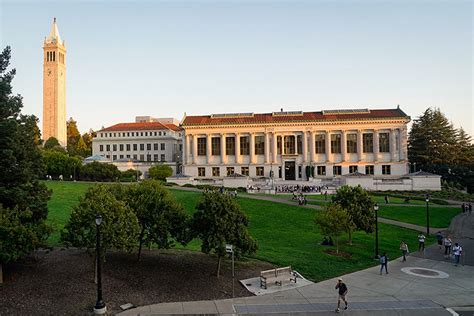California is a hub for urban planning education, with several top-ranked universities offering undergraduate programs in this field. These programs provide students with a comprehensive understanding of urban planning principles, policies, and practices, preparing them for careers in planning, development, and sustainability.

1. University of California, Berkeley
– Enrollment: 32,000+
– Acceptance Rate: 17%
– Average GPA: 3.94
– Tuition: $14,253 (in-state), $43,813 (out-of-state)
– Faculty: 80+
– Programs: Bachelor of Arts (B.A.) in Environmental Design, Bachelor of Arts (B.A.) in City and Regional Planning
2. University of California, Los Angeles (UCLA)
– Enrollment: 46,000+
– Acceptance Rate: 12%
– Average GPA: 4.04
– Tuition: $13,239 (in-state), $42,773 (out-of-state)
– Faculty: 60+
– Programs: Bachelor of Arts (B.A.) in Urban Planning, Bachelor of Science (B.S.) in Urban Studies and Planning
3. University of Southern California (USC)
– Enrollment: 47,000+
– Acceptance Rate: 16%
– Average GPA: 3.86
– Tuition: $58,229
– Faculty: 50+
– Programs: Bachelor of Science (B.S.) in Urban Planning and Development, Bachelor of Arts (B.A.) in Urban Studies
4. California State Polytechnic University, Pomona (Cal Poly Pomona)
– Enrollment: 24,000+
– Acceptance Rate: 43%
– Average GPA: 3.52
– Tuition: $7,143 (in-state), $19,875 (out-of-state)
– Faculty: 30+
– Programs: Bachelor of Science (B.S.) in Urban and Regional Planning
5. San Jose State University (SJSU)
– Enrollment: 32,000+
– Acceptance Rate: 50%
– Average GPA: 3.37
– Tuition: $7,989 (in-state), $21,372 (out-of-state)
– Faculty: 25+
– Programs: Bachelor of Science (B.S.) in Urban and Regional Planning, Minor in Urban Planning
Urban planning plays a vital role in shaping the built environment and improving the quality of life in cities and regions. It involves the planning, design, and management of urban areas, addressing issues such as land use, transportation, housing, and environmental sustainability.
1. High Demand for Professionals
– The Bureau of Labor Statistics projects a 11% growth in employment for urban planners between 2020 and 2030.
– The demand for skilled professionals in urban planning is driven by increasing urbanization and the need to address complex challenges facing cities.
2. Interdisciplinary Approach
– Urban planning programs draw on disciplines such as architecture, economics, sociology, and engineering.
– Students gain a multifaceted perspective on urban environments, enabling them to address complex issues from a holistic standpoint.
3. Career Flexibility
– Urban planning graduates have diverse career options in the public, private, and non-profit sectors.
– They can work in roles such as city planners, urban designers, transportation planners, and environmental planners.
4. Impactful Work
– Urban planning professionals have a direct impact on the livability, sustainability, and economic prosperity of cities.
– They shape the built environment that we live, work, and play in, making a positive difference in people’s lives.
5. Strong Networking
– Urban planning programs provide opportunities for students to connect with professionals in the field through internships, workshops, and conferences.
– This networking builds valuable relationships and enhances career prospects.
Pros:
– High demand for professionals
– Interdisciplinary approach
– Career flexibility
– Impactful work
– Strong networking
Cons:
– Competitive admission rates
– Rigorous coursework
– Can be a demanding field with long working hours
– Entry-level salaries may vary depending on the industry and location
- Consider your interests: Explore different aspects of urban planning to identify your areas of interest and specialization.
- Research the programs: Carefully examine the curriculum, faculty, and facilities of different programs to find one that aligns with your goals.
- Visit the campuses: Attend campus visits or virtual events to get a firsthand look at the environment and meet with faculty and students.
- Network with professionals: Connect with urban planning professionals to gain insights into the field and learn about potential job opportunities.
- Prepare for the application: Gather strong transcripts, essays, and letters of recommendation to demonstrate your qualifications.
